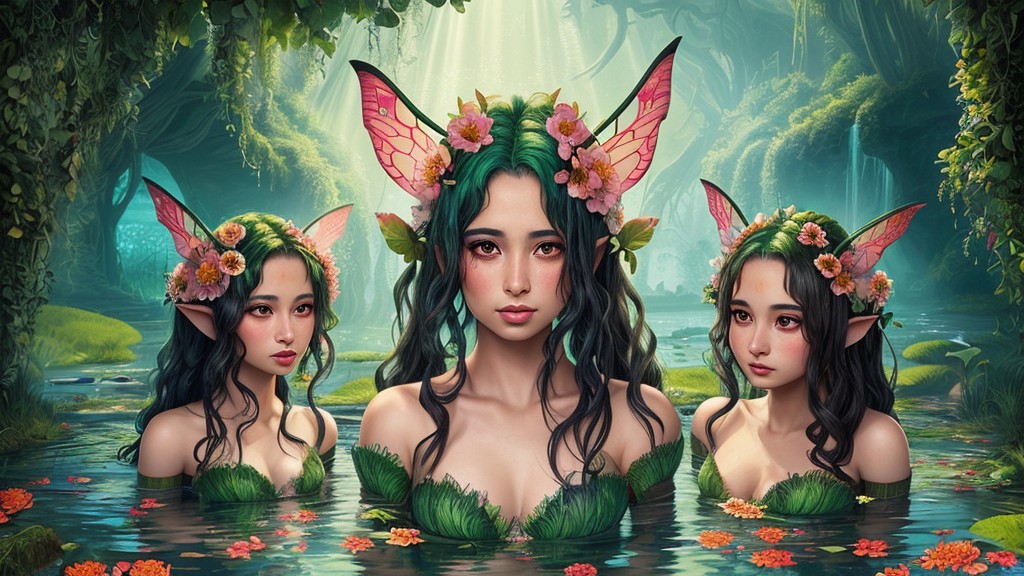

Dryades (Dryads):
Dryades were tree nymphs, specifically associated with oak trees. They were depicted as beautiful young women who lived within the trees and were believed to be born along with their respective trees. These nymphs were known for their protective and nurturing roles towards their trees. One famous Dryad is Daphne, who was pursued by the god Apollo. To escape his advances, Daphne was transformed into a laurel tree by her father, the river god Peneus.
Anthusae (Anthousai, Flower-Nymphs):
Anthusai were nymphs associated with flowers, often depicted with hair resembling the colors of various blossoms. While specific stories about individual Anthusai may not be as prevalent, they were generally believed to embody the beauty and vitality of flowers. Their presence in mythology reflects the significance of flowers in ancient cultures, symbolizing life, beauty, and fertility.
Alseides (Alseids, Meadow-Nymphs):
Alseides were nymphs associated with meadows and open grassy spaces. They were depicted as playful and carefree spirits, often dancing and frolicking in fields. Though they don’t have prominent individual stories, Alseides represented the pastoral aspects of nature and were often invoked in hymns and poems praising the beauty of the countryside.

Meliai (Meliae, Ash-Tree Nymphs):
Meliae were nymphs associated with ash trees. According to Hesiod, they were born from the blood of Ouranos (Uranus) when he was castrated by Kronos (Cronus). The Meliae were considered the nymphs of the ash trees and were believed to dwell within the trees themselves. Their stories often intertwined with those of the Gigantes (Giants) and Kouretes (Curetes), highlighting their role in ancient cosmogony and the mythological landscape.
These nymphs were integral to ancient Greek and Roman mythology, embodying the spirits of nature and playing essential roles in various myths and legends. Their stories often reflect the cultural significance of natural elements like flowers, plants, and trees in ancient societies.
Shop Now at Anthousai Apothecary for Your Rituals of Beauty and Wellness
